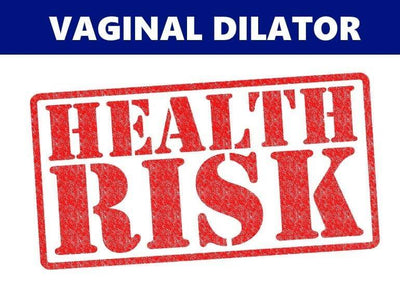
| Caroline Knight
How Vaginismus Treatment Could Change Your Life
Vaginismus is one of the most common sexual problems in women. Although not all women suffering from vaginismus understand what is happening with their bodies, they realize that there is a tenacious problem. Eventually a form of vaginismus treatment must be undertaken if a woman is to enjoy her sex life once again.
Vaginismus is classed as a genito–pelvic pain and penetration disorder. It is characterized by the involuntary contraction of vaginal muscles. This leads to tension and tightness, which can cause extreme pain and difficulty during penetration – often making it impossible. Sexual intercourse becomes a traumatic experience for the woman and leads to a cycle of apprehension and discontent.
Why vaginismus treatment is important
Vaginismus can seriously inhibit sexual experiences, but is can also make important gynecological examinations difficult to conduct. If left unchecked, vaginismus can lead to a negative cycle of disappointing and painful sexual experiences that block intimacy and put a strain on romantic relationships. Both partners can end up feeling frustrated, fearful, and at a loss as to how to manage the situation.
When it comes to health, being unable to complete necessary checks can leave a woman in a vulnerable position. It will be very difficult to tell if she is developing dangerous health conditions. In either case, treating vaginismus is essential.
Which vaginismus treatment will work for you?
Treating vaginismus successfully depends on the reason the condition developed in the first place. There are two types of vaginismus: primary and secondary. Primary vaginismus applies to women for whom sex has never been possible due to involuntary vaginal contractions.
Secondary vaginismus applies to women who have been able to have penetrative sex before, but for whatever reason, now cannot. When deciding how to treat vaginismus, it will be necessary to understand how and when your condition developed. For example, if a traumatic event triggered it, dealing with vaginismus psychologically may be very effective.
If you are not aware of any reason for having the condition, psychological vaginismus treatments may still help. However you may see greater improvements with physical treatments. Some may prefer to treat vaginismus at home, while others will opt for treatment with a therapist of some kind.
Popular vaginismus treatments
Lots of women have had success with a combination of treatments. Here are some the common vaginismus treatments you can try:
Psychological treatments
- Sex therapy
- Counselling or relational therapy
- Psychotherapy
- Hypnosis (including systematic desensitization)
Physical treatments
- Vaginal dilator therapy
- Pelvic floor physical therapy
- Drugs: including muscle paralytic botulinum toxin A, antidepressants, local anesthetics such as lidocaine, or muscle relaxants such as diazepam
Vaginismus causes can be biological, emotional, psychological or relational in nature. Therefore it can be a case of ‘trial and error’, experimenting with different combinations of treatments.
Vuvagirl recommends that before resorting to powerful drugs that may have harmful side effects, you try physical and psychological measures. Systematic desensitization and sex therapy show particularly good results when combined with the use of vaginal dilators. Dilators can gradually prepare the vagina for penetration by gently and incrementally stretching it so that the woman becomes accustomed to the sensations.
However severe your condition, there is likely to be a vaginismus treatment that will work for you. It may still require a combination, but with perseverance you should be able to overcome this testing condition and resume a healthy sex life once again.
How do Neodymium Vaginal Dilators work?
7 Reasons for a Tight Vagina and How to Loosen
How to Relax Vaginal Muscles, Vaginismus & Sex
Vaginal Stretching - Keeping in Shape with Dilators
Do Dilators Really Work? Yes, and They can Improve Your Sex Life!














